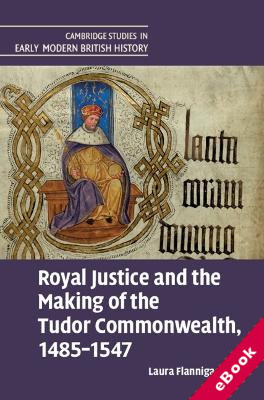We are now closed for the Christmas and New Year period, returning on Monday 5th January 2026. Orders placed during this time will be processed upon our return on 5th January.

The device(s) you use to access the eBook content must be authorized with an Adobe ID before you download the product otherwise it will fail to register correctly.
For further information see https://www.wildy.com/ebook-formats
Once the order is confirmed an automated e-mail will be sent to you to allow you to download the eBook.
All eBooks are supplied firm sale and cannot be returned. If you believe there is a fault with your eBook then contact us on ebooks@wildy.com and we will help in resolving the issue. This does not affect your statutory rights.
The dawn of the Tudor regime is one of most recognisable periods of English history. Yet the focus on its monarchs' private lives and ministers' constitutional reforms creates the impression that this age's major developments were isolated to halls of power, far removed from the wider populace. This book presents a more holistic vision of politics and society in late medieval and early modern England. Delving into the rich but little-studied archive of the Royal Court of Requests, it reconstructs collaborations between sovereigns and subjects on the formulation of an important governmental ideal: justice. Examining the institutional and social dimensions of this point of contact, this study places ordinary people, their knowledge and demands at the heart of a judicial revolution unfolding within the governments of Henry VII and Henry VIII. Yet it also demonstrates that directing extraordinary royal justice into ordinary procedures created as many problems as it solved.